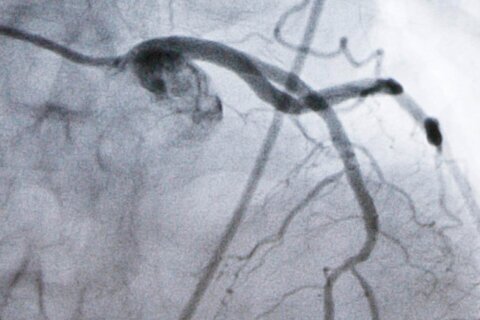WASHINGTON — Are you worried that your memory is not as good as it used to be? Then you might want to think about exercising more.
Sadly, memory actually peaks at age 20, according to Sally Squires, who writes the Lean Plate Club™ blog. And the hippocampus — a section of the brain associated with memory — shrinks 1–2 percent per year in adults.
The good news, however, is that there are a lot of things that you can do to help preserve your memory.
“Physical activity increases blood flow to the hippocampus, so that’s a good thing,” Squires told WTOP’s Mark Lewis and Debra Feinstein. “And there is new evidence that has emerged over the last several years that exercise can actually help increase the size of the hippocampus.”
Research shows that the hippocampus is larger in people who are more fit. According to a study published in the Proceedings of the National Academy of Sciences, 30 minutes a day of moderate exercise three times per week can enable the hippocampus to grow. They randomly assigned 162 older adults either to exercise moderately three times per week or to do toning, which served as a control group.
“They found that the exercise group actually, their hippocampus increased by about 2 percent, which is equivalent to turning back the clock on the hippocampus by about one to two years.” Squires said.
By comparison, the hippocampus shrunk in the group that just did toning exercises.
Another study published just this year found for the first time that older adults who are more physically fit experience fewer “senior moments” of not being able to correctly find the word on the tip of their tongues.
Less than 5 percent of adults get 30 minutes of physical activity recommended daily and only one in three get the amount needed weekly.
The Mayo Clinic found a number of other activities or life changes that can help preserve memory.
They recommend staying mentally active — using crossword puzzles, playing chess or even driving a less-familiar route on your way home.
They also found that getting enough sleep, socializing regularly, eating a healthy diet and being physically active all helped preserve a person’s memory.
According to their findings, you should also manage chronic health conditions, especially high blood pressure and high cholesterol, heart disease, thyroid problems and Type 2 diabetes.








